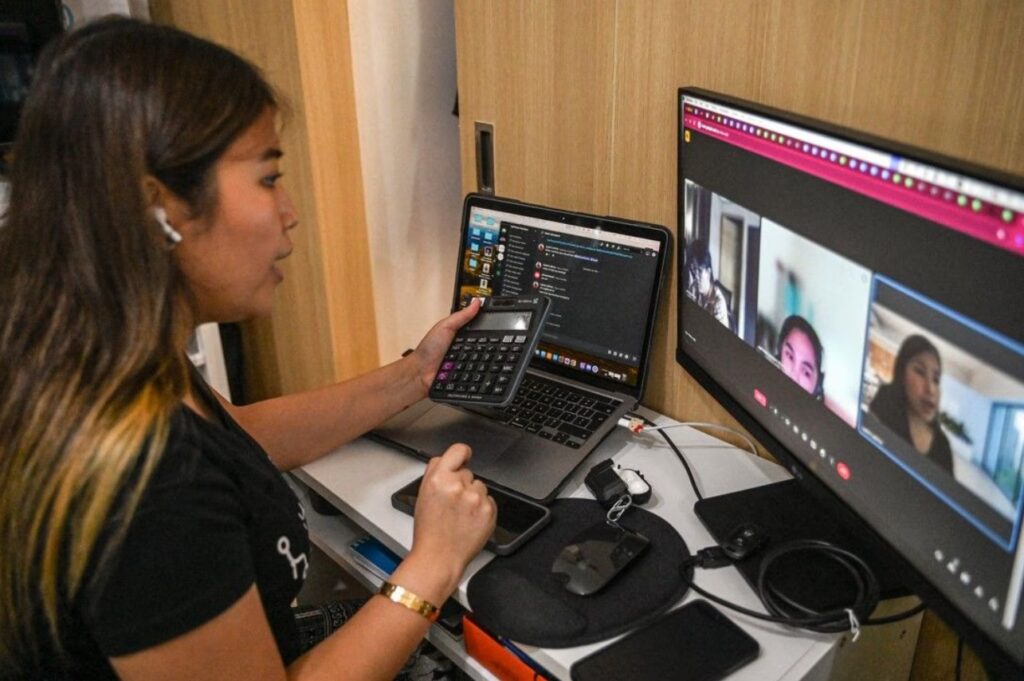The Philippines’ vibrant talent pool in technology and customer service makes it a prime destination for global businesses seeking expansion. Transitioning from traditional outsourcing Philippines models, such as business process outsourcing (BPO), to an Employer of Record (EOR) Philippines framework offers companies enhanced control, compliance, and cost efficiency. By partnering with an EOR company in the Philippines, businesses can delegate legal employment responsibilities like payroll outsourcing and HR management while focusing on core operations. This strategic shift enables foreign companies hiring in the Philippines to access skilled professionals without establishing a local entity, navigating the complex regulatory landscape with workforce solutions in the Philippines.
Understanding EOR in the Philippines
The Employer of Record (EOR) model is a game-changer for businesses expanding into the Philippines, allowing them to hire employees without the burden of setting up a local entity. An EOR acts as the legal employer, managing compliance, payroll, and administrative tasks while companies retain operational control over their teams. This model is particularly valuable in the Philippines, where labor laws are stringent and cultural nuances shape employment practices. Partnering with a trusted EOR provider like Out Task simplifies access to the country’s talent pool in sectors like IT and finance.
- Definition and Role: An EOR in the Philippines handles employment contracts, tax withholdings, and statutory benefits, ensuring compliance with local labor laws, unlike PEO Philippines models that involve co-employment.
- Historical Context: The growth of EOR services in the Philippines builds on the country’s established outsourcing industry, which has evolved from call centers to sophisticated knowledge process outsourcing.
- Key Players: Providers like Out Task offer comprehensive EOR company Philippines services, streamlining operations for international firms.
- Legal Framework: EORs must follow Department of Labor and Employment (DOLE) regulations, including minimum wage and social security contributions.
- Comparison with Outsourcing: Unlike traditional outsourcing in the Philippines, where tasks are fully delegated, EOR allows direct employee management with compliance support.
This understanding highlights why businesses are shifting to EOR vs outsourcing to the Philippines for a more efficient hiring approach.
Benefits of Transitioning from Outsourcing to EOR
Moving to an EOR model in the Philippines offers significant advantages over traditional outsourcing, providing businesses greater control and reduced risks. While outsourcing often involves handing over entire processes to third-party vendors, EOR allows companies to manage their teams directly while offloading administrative complexities. This is particularly appealing for foreign companies hiring in the Philippines, as it eliminates the need for a local subsidiary, potentially reducing setup costs significantly.
- Cost Savings: EOR minimizes the high fees of BPO firms, offering flat-rate services for payroll and compliance in the Philippines and cutting overhead costs.
- Compliance Assurance: EOR ensures adherence to local taxes, labor laws, and benefits, reducing the risk of penalties common in traditional outsourcing.
- Talent Retention: Employees under EOR gain stable employment status, which improves access to loans and rentals, boosts morale, and lowers turnover.
- Scalability: EOR facilitates remote staffing in the Philippines, enabling rapid hiring without long-term commitments, which is ideal for dynamic business needs.
- Access to Expertise: EOR leverages specialized HR outsourcing Philippines knowledge, ensuring culturally aligned teams.
- Risk Mitigation: By handling employment outsourcing Philippines complexities, EOR protects against legal disputes, a frequent outsourcing challenge.
These benefits make EOR an attractive option, enhancing efficiency in the Philippine market.
Requirements for Transitioning to EOR in the Philippines
Transitioning to an EOR model in the Philippines requires careful attention to legal, financial, and operational details, a task too complex for most businesses to manage alone. Companies must evaluate their current outsourcing setups, ensuring compatibility with EOR frameworks. This involves gathering extensive documentation and navigating intricate Philippine labor regulations, a process that can overwhelm even experienced HR teams without professional support.
- Legal Documentation: Prepare employment contracts that comply with DOLE standards and cover probationary periods, working hours, and minimum wages.
- Tax and Compliance Filings: Register for BIR (Bureau of Internal Revenue) withholdings, SSS (Social Security System), PhilHealth, and Pag-IBIG contributions, each with specific deadlines.
- Employee Data Compilation: Collect personal details, work histories, and benefit entitlements to ensure smooth transitions and avoid payroll disruptions.
- Provider Selection Criteria: Assess EOR companies for local expertise, transparent pricing, and understanding of PEO vs EOR Philippines distinctions.
- Financial Preparations: Budget for EOR fees, including setup and ongoing costs, while auditing current outsourcing expenses.
- Internal Assessments: Align HR management Philippines practices with EOR protocols, including performance metrics and training programs.
These requirements underscore the complexity, often requiring months of preparation to execute flawlessly.
The Process of Transitioning to EOR
The EOR process in the Philippines for transitioning from outsourcing is a detailed and intricate undertaking, far too demanding for an individual or small team to manage without expertise. It involves evaluating current outsourcing arrangements, selecting an EOR partner, and executing employee onboarding and data migration. Each step carries risks, such as regulatory oversights or employee misclassification, making professional assistance critical to avoid costly mistakes.
- Initial Assessment: Review existing contracts and employee statuses to identify transition needs, requiring deep legal knowledge.
- Provider Selection: Choose an EOR with expertise in staff leasing in the Philippines, involving thorough vetting and due diligence.
- Contract Negotiations: Draft agreements protecting intellectual property and outlining responsibilities, navigating employment outsourcing in the Philippines, and its nuances.
- Employee Communication: Inform staff about changes, addressing concerns over benefits and stability with careful HR handling.
- Data Transfer and Onboarding: Migrate payroll data and enroll in new systems, ensuring continuity in how to hire employees in the Philippines.
- Compliance Verification: Conduct post-transition audits to confirm adherence to labor laws, a task prone to errors without oversight.
- Monitoring and Adjustment: Track performance metrics and adjust strategies, incorporating feedback for ongoing improvement.
This multi-step process, often spanning months, highlights the overwhelming workload involved.
Challenges in Transitioning and Why Professional Help is Essential
The transition to EOR in the Philippines is fraught with challenges, from regulatory complexities to operational disruptions, making it daunting for any single person or internal team. Issues like worker misclassification, aligning outsourcing contracts with EOR frameworks, and ensuring payroll and compliance in the Philippines under shifting laws require specialized knowledge. These hurdles emphasize the critical need for professional support to avoid costly errors. Out Task, a trusted provider, offers tailored expertise to navigate these complexities efficiently.
- Regulatory Compliance Risks: Philippine labor laws are strict, with non-compliance leading to penalties; EOR experts manage this seamlessly.
- Employee Transition Resistance: Workers may resist changes in employment terms; professional providers ensure smooth communication.
- Cost Management Issues: Hidden transition costs can escalate; Out Task’s transparent pricing prevents budget overruns.
- Time-Consuming Administration: Document gathering and system integrations demand significant resources, often unmanageable internally.
- Cultural and Operational Alignment: Adapting to local practices requires insight; EOR firms ensure cultural fit in remote staffing in the Philippines.
- Scalability Hurdles: Rapid growth complicates transitions; Out Task provides scalable workforce solutions in the Philippines.
Given these challenges, partnering with Out Task simplifies the intricate process and ensures a successful transition.
Best Practices for Successful EOR Implementation
Implementing an EOR model in the Philippines requires strategic planning and precise execution to avoid common pitfalls. Building strong partnerships with experienced EOR providers, maintaining clear communication, and prioritizing ongoing training are critical for success. These practices ensure efficiency and sustainability when hiring employees in the Philippines.
- Partner Selection: Choose EOR firms like Out Task with proven local expertise for seamless compliance and support.
- Comprehensive Planning: To minimize disruptions, develop detailed timelines for all phases, from assessment to post-implementation.
- Employee Engagement: Involve staff early through feedback sessions to build trust and reduce resistance.
- Technology Integration: Use HR tools for payroll and compliance tracking, ensuring data security and efficiency.
- Regular Audits: Monitor legal compliance in EOR Philippines to adapt to regulatory changes proactively.
- Performance Metrics: Set KPIs for team productivity and satisfaction to evaluate transition success.
- Continuous Improvement: Refine strategies based on insights, turning challenges into opportunities for growth.
These best practices pave the way for effective EOR implementation, leveraging the Philippines’ talent pool.
Final Thoughts
In conclusion, transitioning from outsourcing to an EOR service in the Philippines offers businesses a strategic advantage, aligning with global expansion goals. Companies can achieve compliance, efficiency, and growth by addressing requirements, processes, benefits, and challenges. As the Philippine market continues to attract investment, EOR services in the Philippines provide a competitive edge in talent acquisition and HR outsourcing, fostering sustainable workforce development.
Is Assistance Available?
Yes, Out Task can help with expert guidance tailored to your needs, ensuring a compliant and seamless shift to EOR in the Philippines. Reach out today to schedule an initial consultation with one of our experts.
- Contact Us Here
- Fill Out the Form Below
- Send an email to: info@outtask.ph



